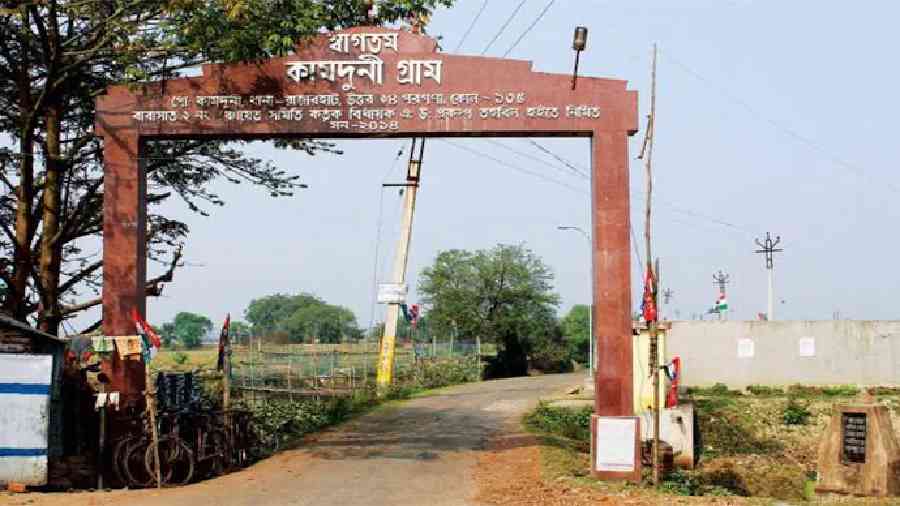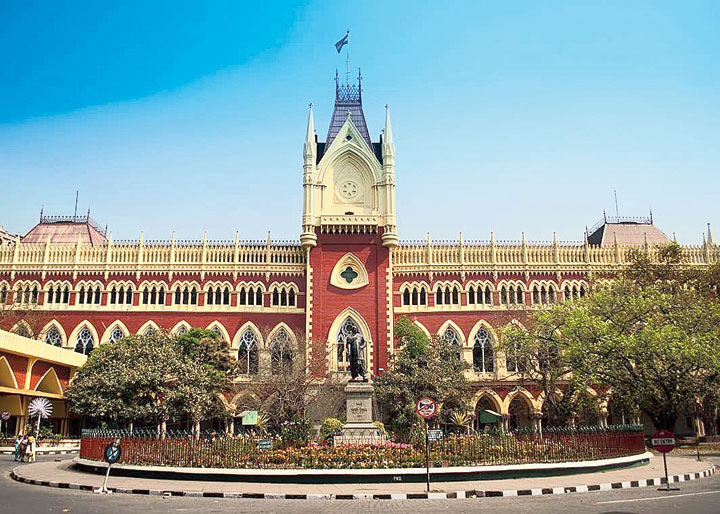When a 21-year-old student, a first-generation learner and the first girl from her family to go to college, was raped and murdered in 2013, the atrocity galvanised her village, Kamduni, to rise in protest.
Tumpa Koyal, one of the friends of the murdered college girl, had emerged as the face of the protests, raising her finger and telling chief minister Mamata Banerjee at the top of her voice 10 years ago that instead of speaking, she should listen to the villagers.
A decade later, on Saturday, Tumpa, Moushumi Koyal and others arrived in Calcutta to raise their voice again. Some had travelled from Kamduni in North 24-Parganas, around 25km from Calcutta.
At a news conference held at the Press Club, Calcutta, they asked why the crime still remained unpunished.
The speakers, who included the murdered woman’s family members, repeatedly alleged that the process of justice was being delayed intentionally.
Pradip Mukherjee, who had led the protests underthe banner of the Kamduni Pratibadi Mancha, said 14 state panel advocates had either been changed or had refused appointments since the case moved to Calcutta High Court in 2019.
On January 28, 2016, a lower Calcutta court (Bankshall Court) had sentenced three men to death for the crime. Three others were handed life terms and two were acquitted.
The convicts petitioned the high court in 2019. Since then, there has been no progress in the case, the protesters said.
Tumpa said she had been intimidated repeatedly by powerful people who wanted to protect the accused. A bomb was hurled at her New Town house by “party men” who wanted to threaten her, she said.
Jayanta Narayan Chattopadhyay, the lawyer who represents the murdered girl’s family, said the 14 state panel advocates supposed to defend the lower court verdict at the high court had either refused the case or been changed. The murdered girl’s mother said the family was facing great hardship.
On June 7, 2013, her daughter, a second-year BA student who studied at a local college, was returning home in the afternoon after her classes. A few metres into the road that led to the village, she was dragged into an empty lot enclosed within a boundary wall and raped repeatedly. Her body was later torn along the middle and thrown over the wall.
The villagers’ anger had turned into a spontaneous movement when the chief minister stepped into the village 10 days after the incident.
Almost the entire village, irrespective of party sympathies, organised itself under the banner of the Kamduni Pratibadi Mancha.
Tumpa, who had told Mamata that she should listen to the villagers, said on Saturday that she still felt the same anger at having her friend snatched away from her.
Moushumi, another Kamduni resident and a prominent face at the protests, said it was absurd that the wait for justice was so long.
The speakers repeatedly underlined that the chief minister had promised “a chargesheet in 15 days and shasti (punishment) in 30”.
The first chargesheet was filed within a month but the judge picked holes in it and ordered the submission of a revised version.
The speakers at the news conference said the accused were being protected with greater resources — the murdered girl’s family and the protesters had very little. On Saturday, they had come under the banner of “Kamduni Grambasibrinda”.
They said the movement for justice would gain momentum now and the protests would become louder.
CPM leaders Fuad Hakim and Tanmay Bhattacharya attended the news conference.
Law minister Moloy Ghatak could not be contacted by this newspaper for comment as his mobile phone was switched off.












